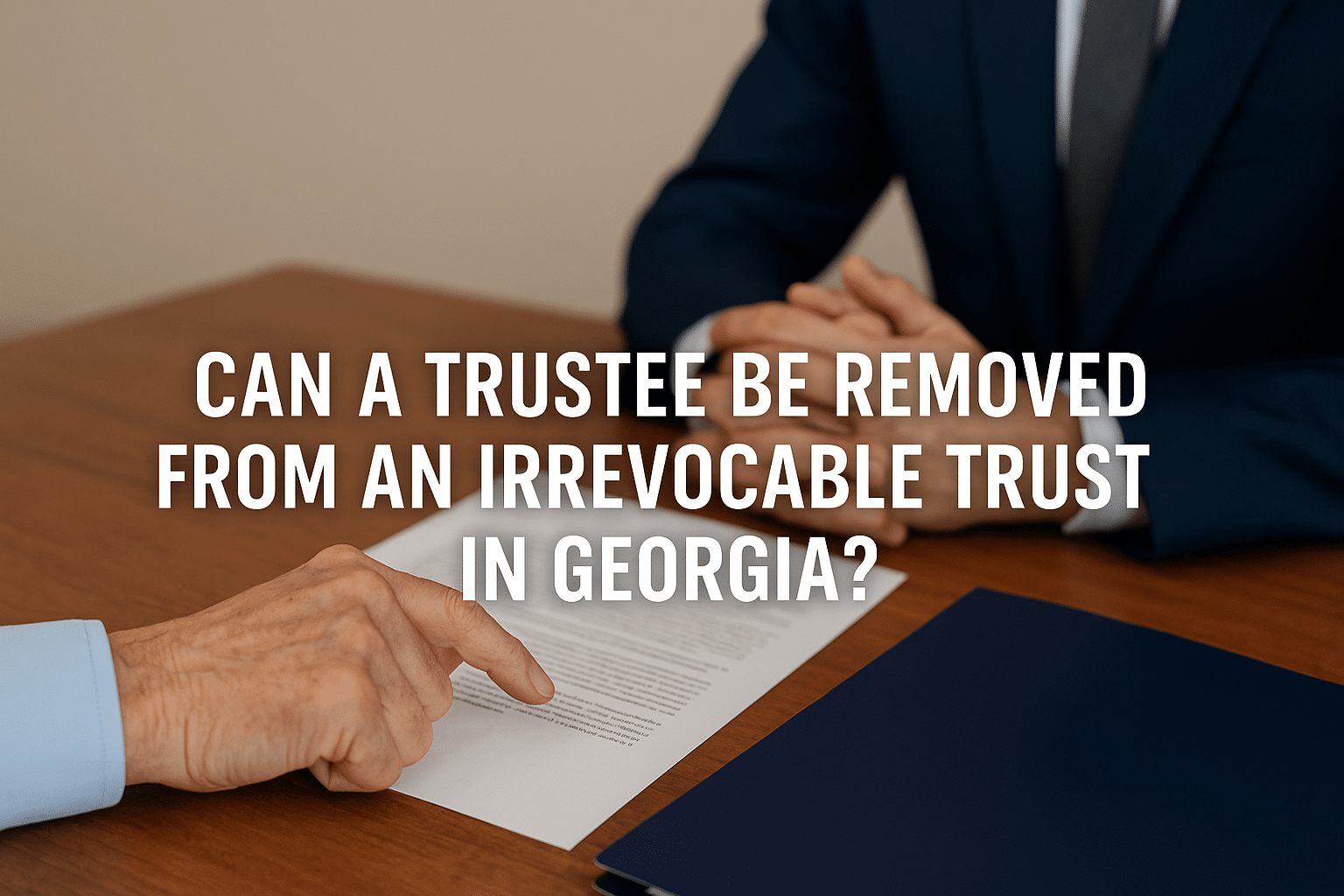Naming a trustee for an irrevocable trust is a major decision—one that should be made with care. But what happens when the trustee is no longer a good fit? Can they be removed? And if so, how?
In Georgia, removing a trustee from an irrevocable trust is possible, but it requires a legal process and justification. Whether you’re a beneficiary, co-trustee, or concerned family member, here’s what you need to know.
Understanding the Role of a Trustee
A trustee is the person or institution responsible for managing the assets in a trust. Their legal duties include:
- Acting in the best interest of the beneficiaries
- Managing trust property prudently
- Following the terms of the trust
- Keeping accurate records and providing accountings
In an irrevocable trust, the trustee has significant power—but they’re not above accountability.
👉 Related: What Can a Co-Executor on a Will Do?
Grounds for Removing a Trustee in Georgia
Georgia law allows for the removal of a trustee in certain situations, typically when they:
- Breach their fiduciary duty
- Mismanage or misuse trust assets
- Are unable or unwilling to perform their duties
- Have a conflict of interest
- Create conflict among beneficiaries or act in bad faith
Even if the trustee hasn’t committed outright fraud, a consistent failure to perform or communicate can justify removal.
Who Can Remove a Trustee?
In Georgia, a trustee can be removed in one of several ways:
1. By the Terms of the Trust
Some trusts include specific instructions allowing:
- The settlor (creator of the trust) to remove the trustee
- A majority of beneficiaries to agree on removal
- The appointment of a trust protector with removal authority
2. By Agreement
If all beneficiaries and the trustee agree, the trustee may resign and a new one may be appointed per the trust’s terms.
3. By Court Petition
If there’s no built-in mechanism—or if parties disagree—a beneficiary or co-trustee can file a petition in Georgia probate court to have the trustee removed. The court will evaluate the trustee’s conduct and the impact on the trust.
👉 Explore: What Happens to Your Trust If You Become Incapacitated
Appointing a New Trustee
Once a trustee is removed, a successor must be appointed. This process depends on the trust language, but if no successor is named, the court can appoint one.
Often, it’s best to appoint someone:
- Neutral and financially responsible
- Willing to serve
- Not entangled in family disputes
In some cases, a professional trustee or attorney may be the better choice.
Final Thoughts
A trustee plays a powerful role in the life of an irrevocable trust—but that power comes with responsibilities. If those duties aren’t being fulfilled, Georgia law allows for removal through the right legal channels.
If you’re concerned about how a trust is being managed—or you’re a trustee looking to resign—Hurban Law, LLC can guide you through the next steps with clarity and care.
Contact us to evaluate your options and protect the trust’s purpose.





